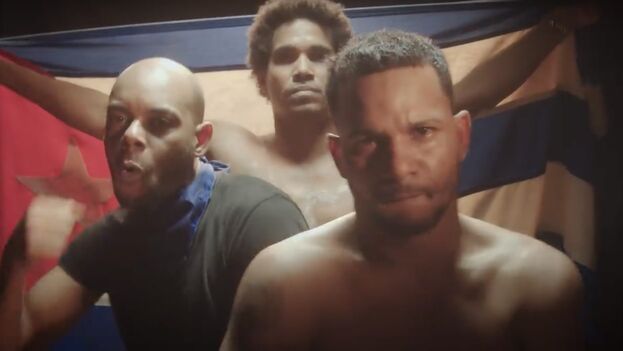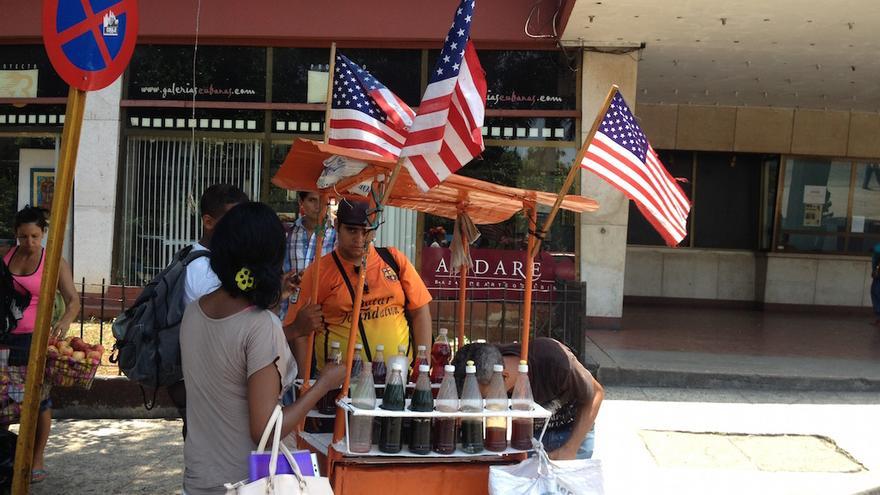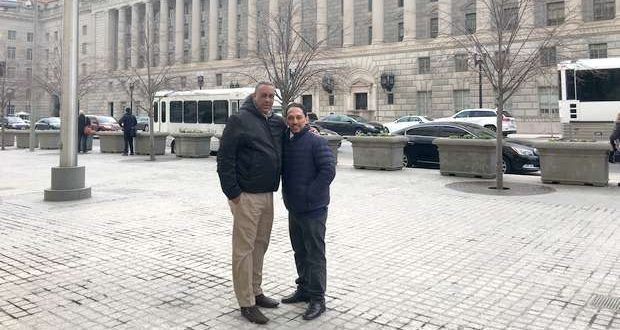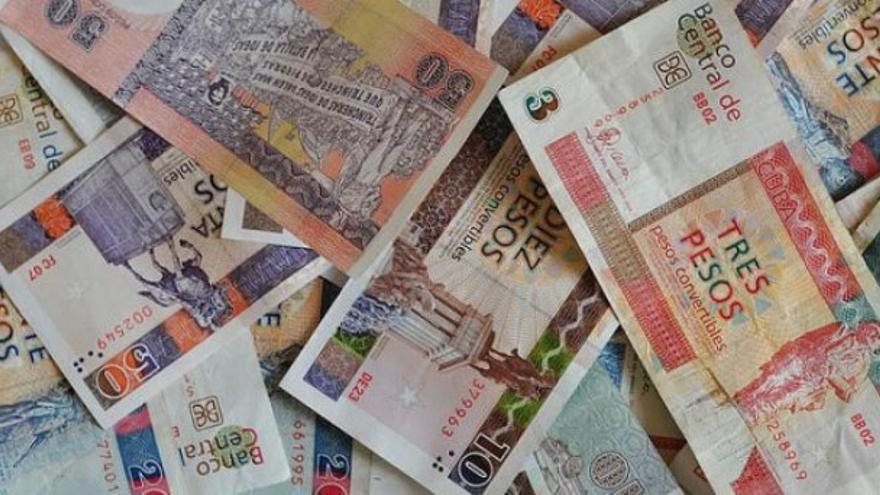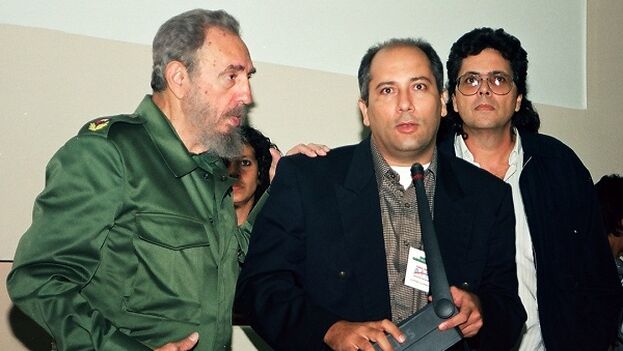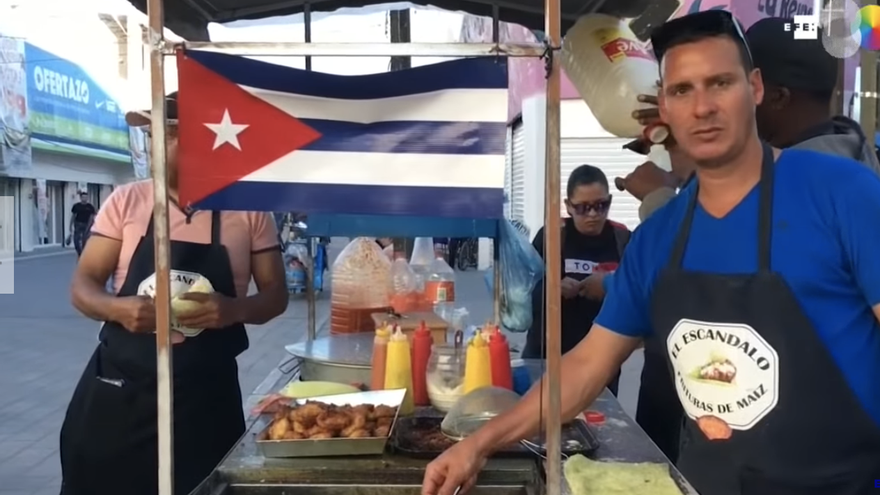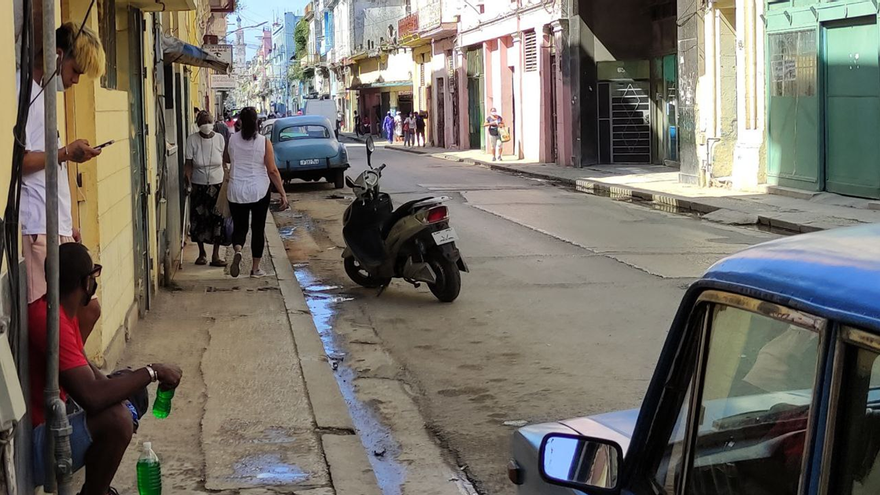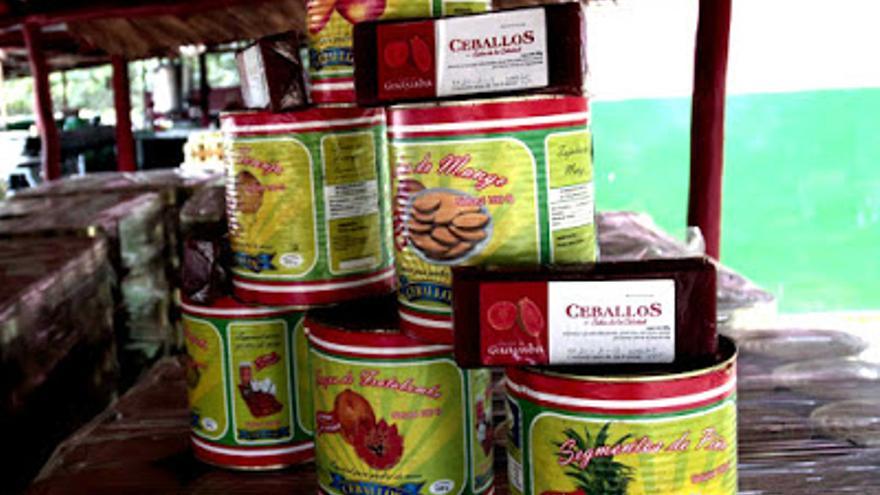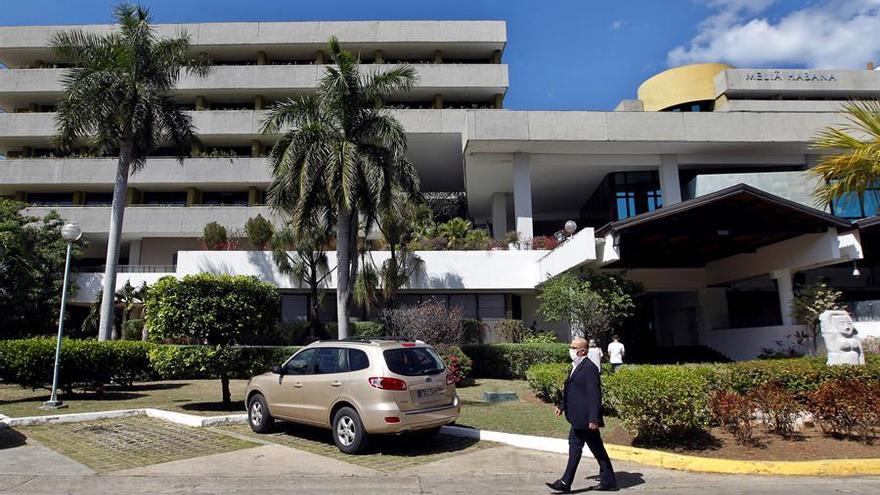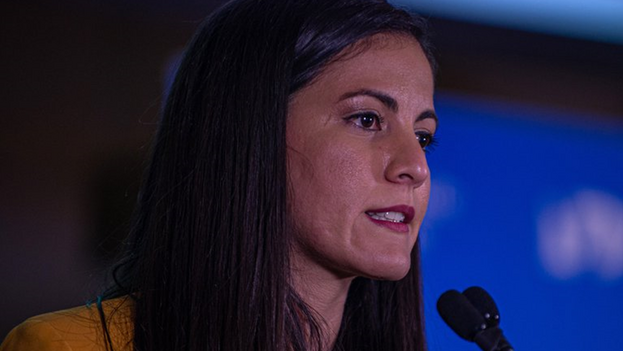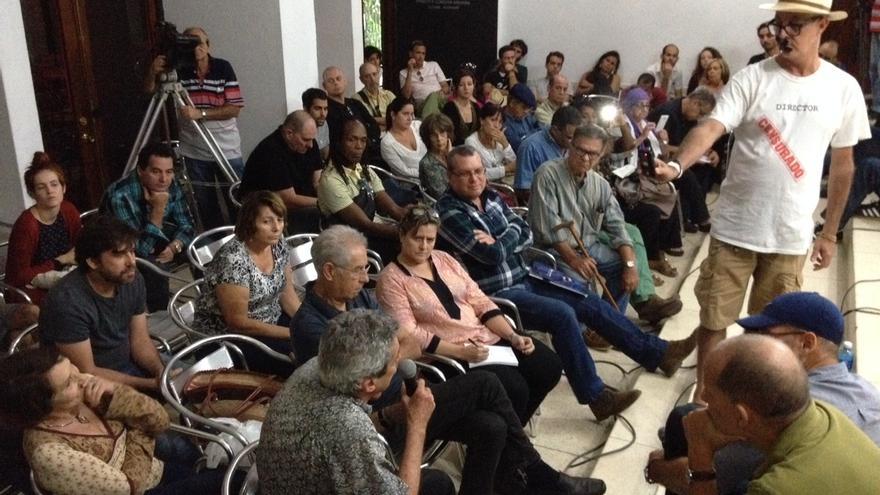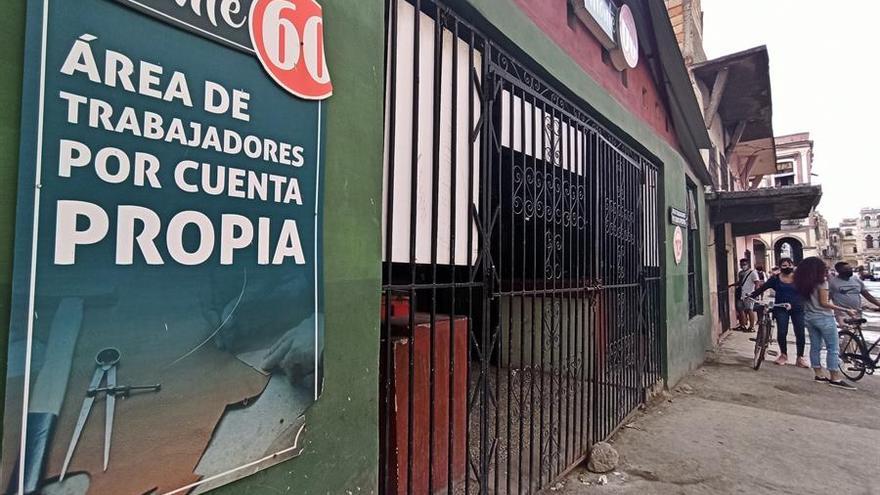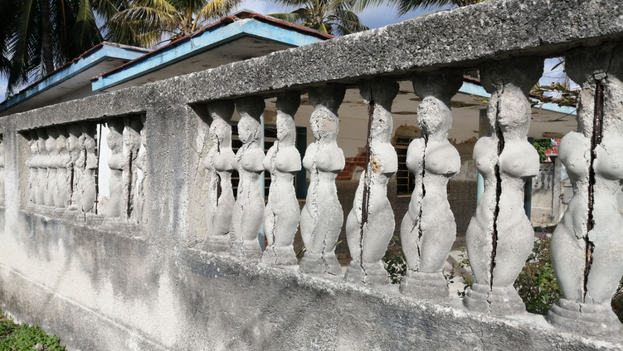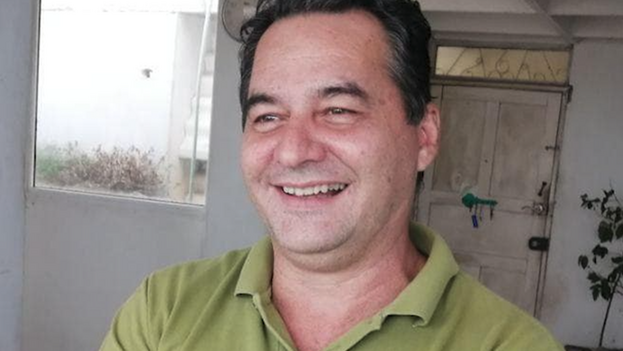Reinaldo Escobar. Is this the first time that you have taken a film script to the novel genre?
Ángel Santiesteban. It is the second novel that I wrote after making the script; a process that is commonly done in reverse, but I have always had a knack for seeing the scenes and describing them. All my literature is a movie that I describe. In my mind, I make up the scene, see the characters do everything and see all that surrounds them. They are actors and actresses on stage in my mind.
We have worked on Cuba’s social and political problems associated with the dictatorship that has oppressed us for the last 61 years
Reinaldo Escobar. And what’s on your desk now?
Ángel Santiesteban. Once the film Plantados was finished, and during this whole wait to show it, I completed another script at the request of Lilo Vilaplana about the events of the Tugboat 13 de Marzo [March 13th] in 1994, that vile murderous act that was forged against innocent victims.
In both scripts, we have worked on Cuba’s social and political problems associated with the dictatorship that has oppressed us for the last 61 years.
Next March, the movie Plantados will be released in theaters in Miami. Let’s hope for the much-needed reception to excite the producers so we can continue to make a denouncement film, a film that tells the truth about Cuba. All on the basis of art, that is our first demand. Lilo and I have tried to do it in the best possible way, from our artistic resources.
Reinaldo Escobar. Does the novel Plantados have a publication proposal, and if so, where and by when?
Ángel Santiesteban. Lilo was approached by an important publishing house and he proposed to publish a novel. He knew that I was at a creative moment, and he told them that I would let him know, but I have let it rest, other urgent creations have emerged simultaneously, such as the script for the 13 de Marzo and a novel that I had started writing before, which is very advanced and I need to finish so as not to drag out truncated projects.
I hope to return to the Plantados novel which I finally titled “La Ciudad Desnuda” [The Naked City] because that’s what they called the part where the semi-naked planted prisoners lived together, refusing to wear the common prisoners’ uniform.
Reinaldo Escobar. What other scripts are you working on?
Ángel Santiesteban. After finishing 13 de Marzo, we have made another one about the current Cuban reality, and, in addition to a couple of stories for medium-length films, we are now working on a kidnapping that the former president of Ecuador, Rafael Correa, ordered some criminals in Colombia to carry out. The Colombians later revealed the whole plot, and those involved who have been able to be brought to justice have already been convicted, except for Correa, who is in Europe, in a country without an extradition agreement with Ecuador.
At this moment there is another proposal for a budgeted script, which is very important because filming is assured.
After finishing the script about the events of Tugboat 13 de Marzo in 1994, we have made another one about the current Cuban reality
Reinaldo Escobar. Parallel to your activity as a writer, you have an important presence in Freemasonry. How have you evolved in that fraternity?
Ángel Santiesteban. It is a passion for the family tradition that I inherited from my mother. Since I was a teenager, I was busy looking for literature about the Masons; José Martí and most of the heroes of the independence were Masons. I started in Freemasonry at the allowed age: 21. Since then, it has had a fundamental place in my life. It has been a school contributing to my formation as a human being, as an artist and as a Cuban.
The Masonic fraternity is a family that occupies us, and that brings a lot of personal satisfaction. I was presented at my lodge “Knights of the Sun” in 1987, and since then I have ascended the steps to become Venerable Master of my lodge on two occasions, I have been Grand Dean of the Meritorious Association of Veteran Masons for two periods too, where I have been able to represent those who have been in the fraternity the longest and have sacrificed the most, and that fills me with great pride to know them as extraordinary people. And it is to such an extent that in 2012 I was serving my first term as Grand Dean and the political police waited to incarcerate me until I handed over the position in January 2013, in February of that same year. They knew that it was very strong and that Masons could be hurt and start a confrontation.
I am the Representative of my lodge before the Masonic High Chamber and the Spiritual Father of my lodge, and perhaps the outside world may not know the meaning and importance of these positions, but Masons do.
On the other hand, I hold the effective 33rd degree, which decides the fate of Scottish Freemasonry. It occupies a lot of my time, but it has been a life vocation, an emotion that in these 34 years of permanence, remains like the first day.
Reinaldo Escobar. Why did you abandon your blog Los hijos que nadie quiso [The Children Nobody Wanted] (The last post is from October 2017)?
Ángel Santiesteban. Because when I started the blog in 2008, it was the most sensational thing I had found up to that point. I was never able to access it from Cuba, because they had it blocked. Other friends managed it from overseas. After producing my writings and sneaking them out of prison while managing to evade the guards – I wrote them by hand – they digitized it and sent it abroad to be uploaded to the blog.
I always remember the blog fondly because it gave me the visibility I needed to face the injustices of the dictatorship
Reinaldo Escobar. Was it then that you started independent journalism?
Ángel Santiesteban. After I got out of jail, I started to collaborate with Cubanet and no longer posted my writings on the blog. Until I had direct access to the internet, and since then, I have been working on Facebook, which I take on as a fighting tool. I interact directly and with immediacy, so now it seems more effective than the blog. For the last three years, literary work and scripts have consumed me, so I had to stop working for Cubanet. But I always remember the blog fondly because it gave me the visibility I needed to face the injustices of the dictatorship.
Reinaldo Escobar. How do the political police treat you now since you have been released from prison?
Ángel Santiesteban. Once they released me in 2015, they tried to re-imprison me for the same alleged crime, even accused by the same person, who continued to lend herself to such infamy – though today she has asked me to forgive her by admitting that it was a truncated passion, something that was spoiled and she did not want to understand at the time – then came the kidnappings by the political police, the threats, all that tension with which we have had to learn to live.
Reinaldo Escobar. You have said that in prison you acquired conditions that affect your health. Can you give details?
Ángel Santiesteban. Upon my release from prison, I took care of having surgery on lipomas I had detected since my confinement. They had appeared on my body and grew incessantly. I noticed them because the same political police always insisted about the state of my health until they exhorted me, with marked intention, for me to examine my body. I did it once and found those bumps that grew incessantly.
My departure was complicated. On one occasion they sliced a lipoma open and closed it again without touching it, which was a very bad sign. I began to think that perhaps I was reaching my end, and it did not occur to me to do it in any other way than to continue striving to work harder and better.
I am proud to have accompanied them on 27N. I stayed with them until the last moment to run their luck
Reinaldo Escobar. A new wave of young artists has assumed a very critical position against the regime. How does that affect you?
Ángel Santiesteban. I am proud to have accompanied them on 27N. I stayed with them until the last moment to run their luck. A Mason brother invited me to join the group, I thanked him, but I explained that they were not contaminated like me, that this was their moment and their space, that I was there to support them. He was there because at that time he thought that the more people in the crowd, the fewer blows per person.
It is the first step backwards that I have seen the dictatorship take, of the many that it will have to continue taking in the nearest future. Many communicated with me and cried, they believed it was the end. When I saw them go inside the Ministry of Culture and that the political police did not repress that, I thought we were also close. But I soon understood that they were buying time, that they knew that allowing repressors to enter the ministry could cost lives, and that the next day there would be thousands. They understood that they were in the most dangerous moment of the “revolution,” and I think they came out in the most intelligent way. They were deceived.
Reinaldo Escobar. Despite everything you have suffered, you remain in Cuba. Is it an irrevocable decision?
Ángel Santiesteban. I maintain a personal war with the regime. It has never occurred to me to leave Cuba and I don’t think I will at this point, unless the dictatorship falls and I am absent for a long time to share with my wandering family around the world, like many, and take care, as I should, of my literature.
Translated by Norma Whiting
____________
COLLABORATE WITH OUR WORK: The 14ymedio team is committed to practicing serious journalism that reflects Cuba’s reality in all its depth. Thank you for joining us on this long journey. We invite you to continue supporting us by becoming a member of 14ymedio now. Together we can continue transforming journalism in Cuba.
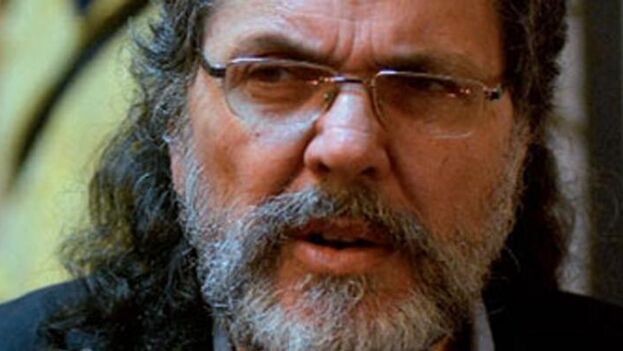
![]() 14ymedio, Havana, 18 February 2021 — Covid-19 offers no truce — 923 cases and 5 deaths in the last report — but Cuban authorities seemed more concerned this Thursday about the surprising success of the video clip Patria y vida, which has gone viral on social networks. All the official media, starting with Granma, the daily of the Communist Party, dedicate several articles to denigrating the authors.
14ymedio, Havana, 18 February 2021 — Covid-19 offers no truce — 923 cases and 5 deaths in the last report — but Cuban authorities seemed more concerned this Thursday about the surprising success of the video clip Patria y vida, which has gone viral on social networks. All the official media, starting with Granma, the daily of the Communist Party, dedicate several articles to denigrating the authors.
